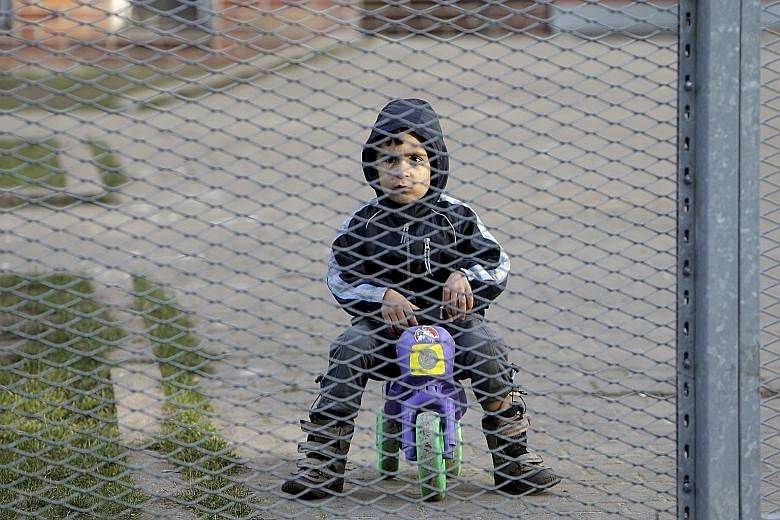UNITED NATIONS • Two-year-old Yazan al-Najjar is a boy without a country. He is neither a citizen of Syria, where his parents were born, nor of Lebanon, where he was born. He has no papers to prove his nationality, nothing except a card that labels him a refugee.
Tens of thousands of children like him are born on the run from war, persecution and poverty - some in cities swelling with exiles, like Beirut, others in forlorn refugee camps from Kenya to Thailand, and still others in transit, as their parents cross the Mediterranean for a new life in Europe. They belong to no nation.
Precise figures are impossible to ascertain. But a report issued by the United Nations this week estimates that 70,000 stateless children are born annually, in regions as disparate as South-east Asia, the Caribbean and even the heart of Europe.
The UN High Commissioner for Refugees estimates that there are three million stateless children worldwide. That figure excludes Palestinians, who have been stateless for generations. The consequences can be dire.
In some countries, the UN report concludes, stateless children are not entitled to government-run immunisation programmes. In many, they cannot attend school - or take end-of-school examinations. In others, when reaching adulthood, they are barred from employment.
The realities defy international law. The Convention on the Rights of the Child, ratified by nearly every country, states that all children are entitled to citizenship. But parents fleeing home face numerous barriers to conveying citizenship to their children. Marriage papers might be lost. Or parents may avoid the government authorities for fear of persecution. Or they may lack the money for proper documents, which could mean that a child's birth goes unregistered.
Moreover, like Yazan, many Syrian children are stateless because of discriminatory laws, including in Syria, that prohibit mothers from passing their nationality to their children. Only fathers have that right, and in one out of four Syrian families, the UN says, fathers are dead or missing. Yazan's mother, Ms Bayan Mohamed, 20, said her husband disappeared when she was three months pregnant with Yazan, their child.
As fighting between the Free Syrian Army and the Islamic State in Iraq and Syria militant group surged in her home town of Dana, she fled, first to Turkey and then to Lebanon. She bore Yazan alone at a hospital in Bekaa Valley. Without a man declaring his paternity, Ms Mohamed could not register the birth.
Ms Mohamed and her son live in Beirut now. She has just lost her off-again-on-again job at a neighbourhood bakery. Her food aid from the UN is about to run out. She described her predicament: "No aid. No husband. Can't go to Syria. Can't prove my son is my son."
In 27 countries, including in the Middle East, the law allows only men to pass their nationality to children. Babies born to refugees and migrants in Europe can end up stateless, as well.
Unlike the United States, which grants citizenship by birth, most European countries do not automatically grant citizenship to children born in their territory, though many have provisions for those children to eventually obtain citizenship. That is not always easy, especially for parents who are living underground, without valid immigration papers themselves.
The war in Syria, now in its fifth year, has drawn sharp attention to stateless children. At least 142,000 children have been born in exile to Syrian refugees registered with the UN, but the real number is most likely far higher because not all Syrians are registered.
Many children end up in the ranks of the stateless because their parents lack documents to prove they are Syrian.
NEW YORK TIMES

